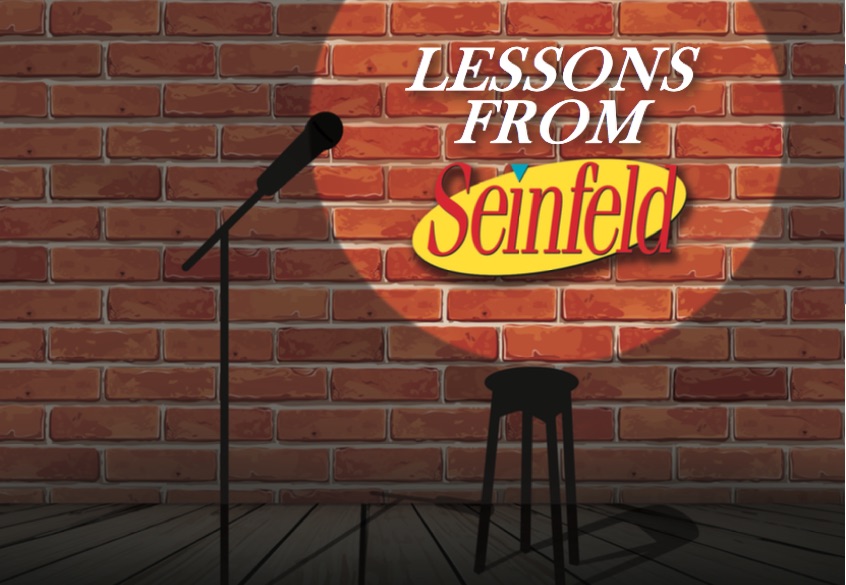
What makes a TV show work? What makes it fail? How do you put together a show that will capture the attention of audiences everywhere? Media and Cinema Studies students ask themselves these questions every day, and one class answers in a completely unique, sometimes ridiculous, often insightful way. Instructor Kelli Marshall offers the popular “Seinfeld” class, during which students explore the show’s masterful combination of the absurdly silly with the truly poignant, its mass appeal and its narrative genius.
“‘Seinfeld’ really lends itself to an entire course because it had such a huge impact on TV history and culture,” Marshall says. “Students not only learn about TV done well, but also about issues of the 1990s and why this show worked in that context.”
The 2015-16 freshmen were one-year-olds when the widely viewed series finale aired 17 years ago, so discussing how the antics of Jerry Seinfeld (himself), Elaine Benes (Julia Louis-Dreyfus), George Costanza (Jason Alexander) and Cosmo Kramer (Michael Richards) comically reenacted current events can be a challenge. For example, the students might have heard about the O.J. Simpson murder trial, but without a little research, they often don’t connect the character of Jackie Chiles (Phil Morris), a lawyer Kramer works with in seasons seven, eight and nine, with Simpson’s attorney, Johnnie Cochran.
“I give the students handouts preceding each screening with a list of topics to research,” Marshall says. “Without it, many of them don’t understand the pop culture references, and without that, they can’t understand the weight of the statement.”
Engaging activities also help inform the students. In April 2013, Marshall had Mark Metcalf — The Maestro in Season Seven — Skype in to talk with the class about working on a sitcom and to answer the students’ questions. Nash Sanderson (CMN ’15), currently a comedy writer and performer with Second City and The iO Theater, had never seen an episode before enrolling in Marshall’s class but says that the ingenious writing style helped him feel connected to the material.
“Many issues dealt with in the series are not specific to any one generation,” Sanderson says. “They cross lines, which is why I think the show was successful in the first place.”
This observation was not wasted on Sanderson. He says he has applied the lessons learned in the class about script writing and plot formation and feels that his own writing has improved since studying the series.
“Seeing how the writers take story lines that seem weird and out of place but eventually wrap together so masterfully — taking disparate threads and tying them together in a satisfying way — I’ve applied that in my own writing,” he says. “When students first sign up, they might think it will just be a fun class — and it is. But you’ll also think critically and work hard. You come out with a great understanding
and appreciation of how comedy is written and how it works in the framework of a television show. It’s really a great class.”
Note: The Seinfeld course will be offered next during the 2016 Summer II Session.